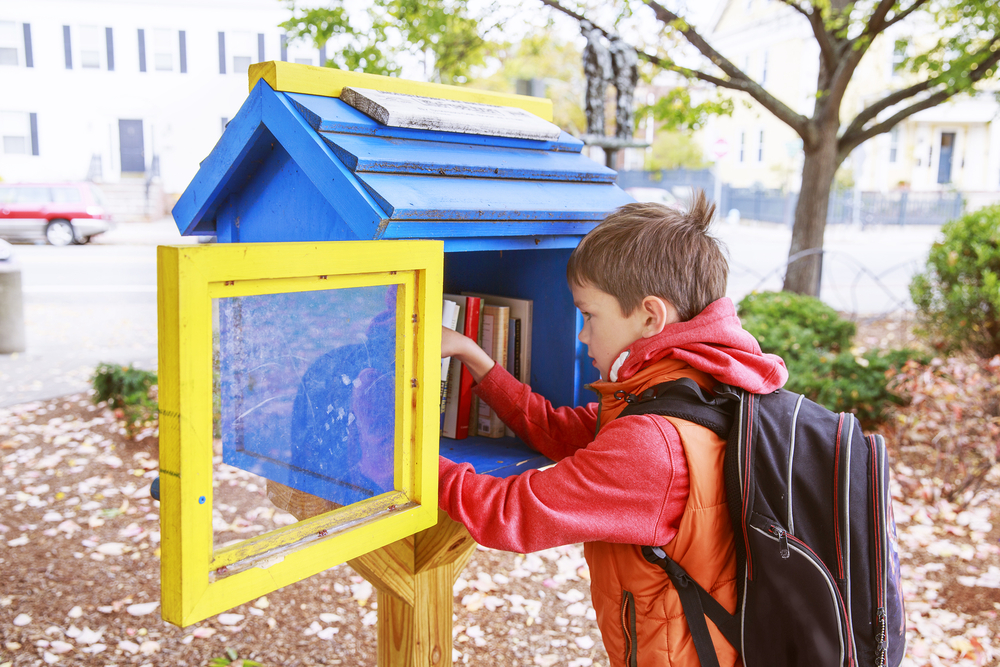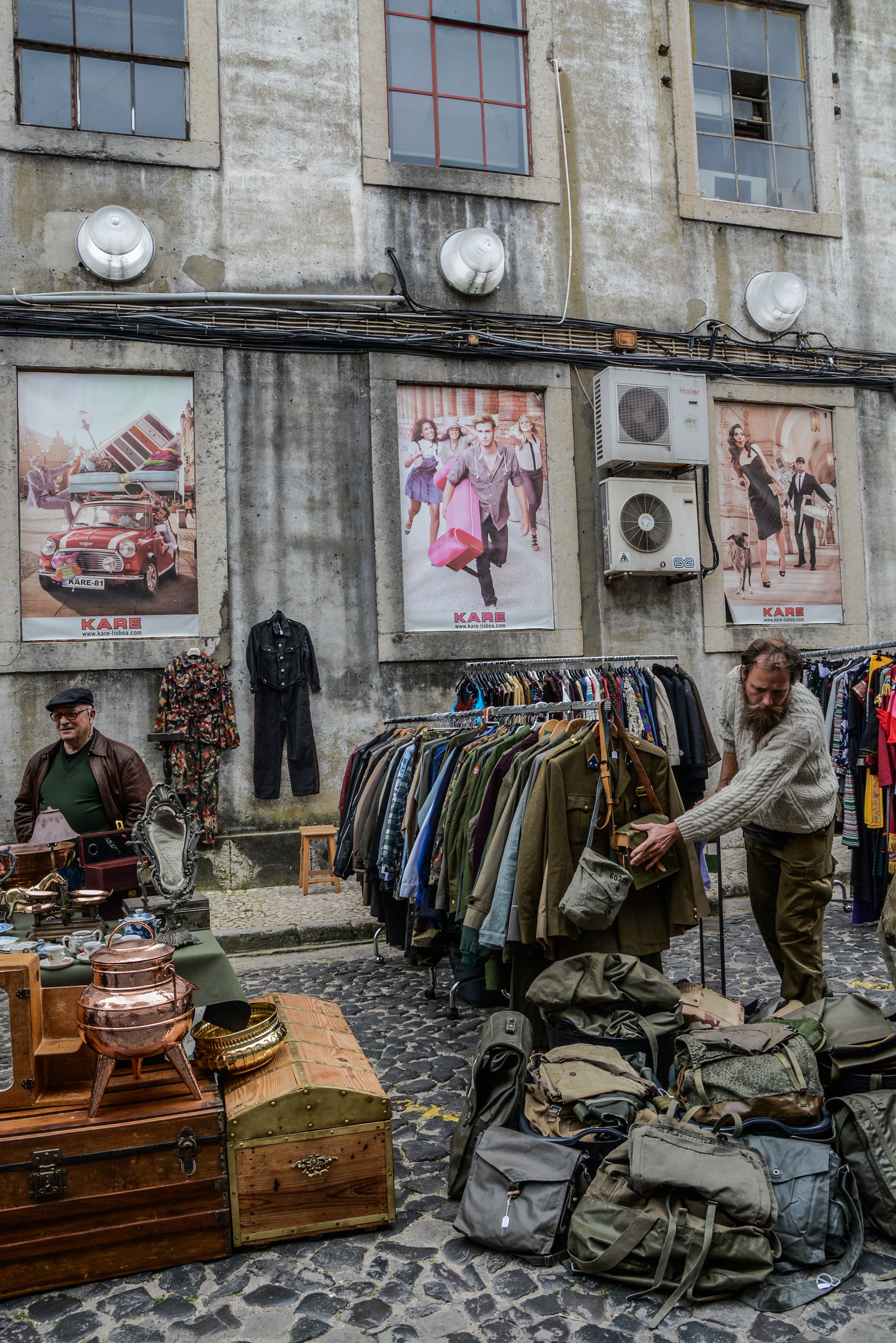
Don’t head straight for the trash—here’s how to donate, sell, swap, or recycle your unwanted items
The key to finding happiness in your decluttering efforts is answering this question: Once you decide to ditch your stuff, what do you do with it?
Unless your soon-to-be-former possessions truly qualify as trash, you won’t want to set them out at the curb on pickup day to clog up your local landfill. Instead, the key is to decide whether to give your stuff away, sell it, swap it, or recycle it.
Here’s how to deal with a variety of items.

Books, Music, Games, Movies
Donate books to your local library or to programs that will ship books to soldiers overseas or to prisoners. If your town has a Little Free Library program, you can leave books in a location near you.
If you’d prefer to sell these items, consider selling them at your next yard sale. You can also sell books and music to a used book store or record store or through online marketplaces.

Clothing and Shoes
Clothing in good shape can often be sold or donated, and formal wear and professional clothing may be especially in demand. Give your fancy dresses a second life by donating them to groups that provide prom dresses to high school girls who otherwise won’t have a gown. Donate gently used professional clothing to organizations that provide professional attire to job seekers to wear to interviews.
For regular day-to-day clothing, including warm coats and accessories, your local homeless or women’s shelter may be grateful for clothing. Many churches also organize clothing donations to organizations in need, and charity thrift shops use clothing donations to raise funds for programs. Some charities will even accept clothing that’s too worn or stained to sell—they turn it over to clothing recyclers.
If you have kids’ clothing and shoes, consider hosting regular clothing swaps with families in your neighborhood who have kids of varying ages. You’ll get rid of clothes your kids have outgrown and get some larger sizes in return.
Building Supplies and Appliances
Donate your reusable and surplus building materials and appliances to Habitat for Humanity’s ReStore outlets. Proceeds help fund Habitat homes.

Toys, Stuffed Animals, Baby Gear
Donate gently used stuffed animals, toys, children’s books, and blankets to a local church or temple. Some partner with shelters and food pantries to provide clothes, toys, and household goods to families in need. You can also look for an organization that distributes toys and books to emergency organizations, children’s services, hospitals, and homeless shelters.
Be aware: Toys, especially stuffed animals, and some baby equipment such as car seats and cribs may not be accepted by many charities because of recalls.
Household Goods
Miscellaneous household goods, small appliances, and linens do surprisingly well at yard sales, says Chris Heiska, owner of the website YardSaleQueen.com. Her advice: Have an extension cord and working outlet nearby so prospective buyers can try anything electronic.
Shelters for homeless people and abused women are always looking for items that residents can use to set up a new home when they leave. And animal shelters and humane societies will use your old towels, linens, and sometimes rugs to provide warmth and comfort to animals. Call your local ASPCA, Humane Society, or small-animal rescue groups to find out what they need.

Unwanted or Duplicate Gifts
Save that brand-new stuff that just isn’t your style or that can’t be returned and donate it to the next charity auction you’re involved with. Somebody will want what you don’t—and you’ll get a tax deduction for your largesse.
Good Furniture
You can sell furniture at a yard sale, but you may not get a great price. Instead, consider listing it online through a local classifieds website or through your local neighborhood forum.
Specialty or Collectible Items
If you’re interested in making some money while you get rid of specialty items or collectibles, a yard sale might not cut it. Instead, try eBay, where items that go for $50 or more will make the investment of time and effort worthwhile, says Washington, D.C.-based certified organizer Scott Roewer. Consider this for vintage items, tableware, or even spare car or motorcycle parts.

Cellphones
Ready to upgrade your phone? First, check with your wireless provider to see if you can trade in your old phone for any value. Some companies refurbish old phones and resell or donate them. If your current phone is in good shape, consider selling it online through a phone-resale website. If it’s no longer functional or an older model, look for an organization locally or online that collects donated phones to raise funds—the donated phones are sold to a recycling company, with proceeds benefitting the organization.
Eyeglasses
Many organizations collect donated glasses to send to people with refractive errors in low- and middle-income countries. Look online to find a drop-off location near you, or check in with your eyeglass provider to see if they collect old frames.

Computers and Electronic Waste
If your electronic equipment is broken or too old to resell, try to recycle it. Many municipalities have free e-waste recycling events that accept computers, monitors, printers, and more. Watch local news for announcements of used-electronics collection days, or find links to local recyclers and refurbishers online.
Plastic Kitchen Containers
Got lids with no bottoms, or bottoms with no lids? Cracked or stained containers? Check for the recycling number on plastics and then look online for the nearest recycling center that will accept them.
Diana Reese is a freelance journalist and writer. Better Homes and Gardens is a magazine and website devoted to ideas and improvement projects for your home and garden, plus recipes and entertaining ideas. Online at BHG.com. Copyright 2021 Meredith Corporation. Distributed by Tribune Content Agency, LLC.






Be the first to comment